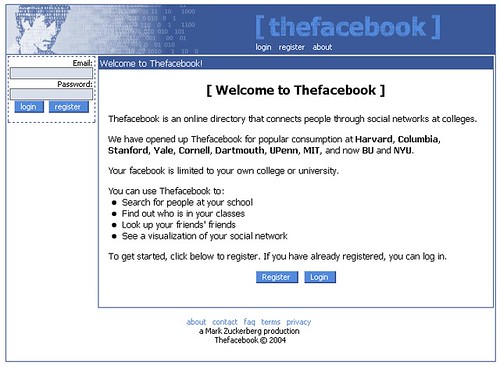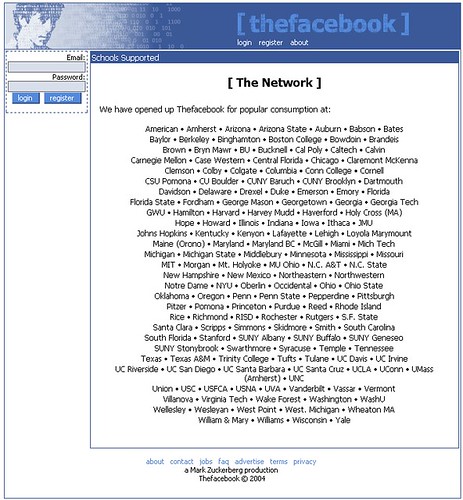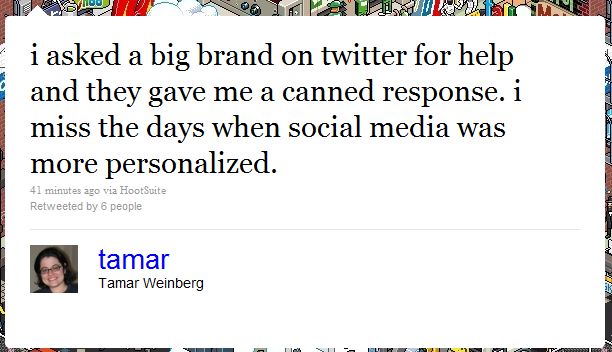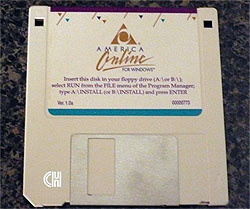A recent study performed by Ph.D. student danah boyd and covered by BBC News has determined that there is a “sharp division along class lines among the American teenagers flocking to the social network sites.” Boyd claims that Facebook users are primarily from wealthier homes and have a greater chance of attending college, whereas MySpace users graduate high school and go straight into the workforce.
As a college graduate and early adopter of Facebook (in 2004), I could definitely see that. But there are other factors at play here that may not necessarily have been considered when Boyd began her studies.
Initial audience. While MySpace was immediately open to all users, Facebook attracted college students first from the most prestigious universities. Why did I join in 2004? It was a real private but promising social network. Early adopters felt that the most elite students were given a sneak peek to the social site that would soon blossom.
And it kept getting bigger, but only for college kids.
I think this actually had a substantial effect on Facebook attracting the “wealthier, college-bound” crowd.
I have two younger sisters. One was in college in 2004, while the other was in high school. The college sister joined Facebook when it was open to her school. The high school sister had no such options. As such, she joined MySpace first, and when Facebook opened its doors to high school students, she hopped on the train. Now, she uses Facebook almost exclusively (though I think the time I spend on the service could definitely trump the time they both spend on it!) 🙂
Facebook has its roots in the college crowd simply because it planted itself there. I personally only hear about high school kids signing up to Facebook now, and not MySpace. I see old high school friends popping up on Facebook everyday.
Appeal. The other obvious distinction is that MySpace appealed to aspiring (and well-known) musicians, which could definitely be associated with class lines. Facebook does not allow you to install music that plays as soon as you access a profile. Yet this was something huge for MySpace, especially for the artists who wanted to showcase their music to prospects. This is why my cousin, an aspiring musician, is focused on keeping his MySpace connection alive (and his music rocks).
Professionalism and Privacy. Privacy is a huge concern for those individuals who want to keep their lives out of search engines and out of the reach of prospective employers who might find incriminating information. This is why many students have migrated over to Facebook from MySpace when the option became available. Ben Yoskovitz recently wrote a very pertinent article about the professionalism of social networks. Every social network is professional, because someone can look you up at anytime. It’s a lot easier to do on MySpace than Facebook. Since Boyd’s study postulates that MySpace users are going straight from high school to the workforce, it is likely that this is not as much a concern for these users. They could do what they want, express themselves the way they want (with colorful backgrounds and loud music), and they were not truly concerned with the consequences. Facebook, on the other hand, was a network that has potential for great business partnerships and opportunities. MySpace was never about forging business opportunities (outside of music contracts).
I spoke with a 12-year-old veteran teacher about this study. She conceded that privacy was a tremendous concern — especially with regards to sexual predators — and this concern impacted the choices of many of her students. For her, Facebook was a safe bet in comparison to MySpace. She has networked with her students, former and current, in this way. She finds that her students have chosen to flock to Facebook for the same reasons. The ease of finding students is another reason why she joined. Additionally, since so many professors have also become members of Facebook, it is more socially acceptable. Quite often, finding a teacher on MySpace doesn’t bode well with the community. There is a negative stigma associated with MySpace.
Familiarity and Desire Not to Change. While I said earlier in this article that old high school friends are beginning to join Facebook, I still see that many of my older friends are familiar with their surroundings within the MySpace community. I’m a borderline user of both social networks; I graduated from college in 2003, but joined Facebook when it established in 2004. I joined MySpace in 2006 (!) to socialize with old friends who had been using MySpace for so long (and didn’t have access to Facebook in its early stages) — and I definitely can see that these individuals, who vow never to join the ranks of Facebook, are content within their own environment and might be comprised of a different category of users. As some of us grew, our life experiences molded us and impacted the social networks we flocked to. Not everyone was ready to embrace that change, and in a way, MySpace is more exclusive in that regard, at least from my observations.
Facebook is getting bigger, and I see more people switching from MySpace. Will Facebook be a MySpace killer, or will MySpace continue to appeal to a different class of individuals? As more and more aspiring developers build upon the Facebook API with new applications that give users the ability to dress up their profiles, it is quite possible that Facebook’s membership will soon trump the numbers on MySpace, and that class lines will soon fade away.






I am still not sure why I joined Facebook but it does seem like there are more college-educated folks among its members.
As a web developer, I see Facebook as massively superior as a site. I have never come to Facebook and had it break, while MySpace breaks pretty frequently. Facebook seems very clean while MySpace…let’s put it this way: if I had hair, I would rip it out twice writing CSS to make MySpace look decent. Couple that with the spam and the lack of privacy, MySpace leaves much to be desired.